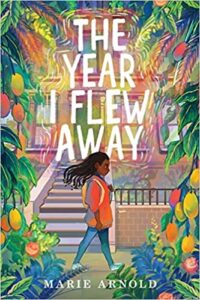

Imaginary Friend by Stephen Chbosky
Grand Central Publishing, 2019
ISBN-13: 978-1538731338
Available: Hardcover, Kindle edition, audiobook
Acclaimed author Joe Hill promoted Imaginary Friend by saying the first fifty pages would blow you away, and I 100% agree with that. The first chapter, which takes place fifty years before the rest of the story, is absolutely hallucinatory. Jumping to the present day, the central character is Christopher, a seven-and-a-half year old boy whose mentally ill father committed suicide four years ago, and is now on the road with his mother, Kate, who is fleeing a relationship with an abusive alcoholic. Chbosky does a great job of depicting the loving, if anxious, relationship between Kate and Christopher, and I think he shows a very realistic depiction of the effects grief, and the loss of a father, can have on the dynamic between a mother and son.
Christopher struggles in school. He is mercilessly bullied by the son of the richest family in town, which also owns the retirement home where his mother works, and dyslexia prevents him from succeeding academically. One day, his mother is late picking him up from school, and by the time she arrives he has mysteriously disappeared. When he is found after six days, he can’t remember anything about that time, but everything in their lives starts looking up, from his success on a math test to Kate’s winning the lottery. But Christopher is also starting to get terrible headaches, and he is hearing the voice of someone he calls “the nice man” who wants him to build a treehouse in the woods behind the house his mother bought with her lottery winnings. Is there something supernatural going on, or is Christopher manifesting his father’s mental illness?
The story starts to run off the rails for me here. According to Chbosky, Christopher is a second grader, seven years old. But he and his peers (both friends and bullies) aren’t acting or being treated like second graders. I 100% guarantee that an overprotective single mother is not going to allow her son who was recently missing for six days to go on a sleepover without making sure that the other child’s parents were right there in the house. But that is exactly what happens. Christopher and three of his friends trick their parents into thinking that each of them is going to a sleepover at another friend’s house so they can go camping in the woods in Pennsylvania in November and tirelessly build a treehouse from complicated blueprints, stealing wood from a construction site, with rare breaks for food.
There’s an echo of It or maybe The Body here in the depiction of the four outcast boys on a mission, but the kids in those stories are living through the 1950s, when kids had a lot more freedom to roam, and in both cases, the kids in those stories were older. Some of the actions of the kids in this book would have been more believable had they been older. Chbosky, best known for his YA novel The Perks of Being a Wallflower, might have done better to age his characters up to middle school. I’m also pretty irritated that Chbosky refers to one of Christopher’s friends, who is in a special education classroom, by the nickname “Special Ed” , given to him by the school bully, throughout the book.
The story is also weighed down by a lot of unneccessary repetition. In the first chapter, every time David Olson is mentioned, it’s as “Little David Olson”, even though it’s quickly obvious that David is a young boy. It’s sometimes difficult to tell who is talking, or if they are talking or thinking, because the use of italics, spacing, font size, punctuation, and capitalization is irregular. I’m not sure if that’s intentional,or not, because it definitely adds to the sense of disorientation that Chbosky establishes from the beginning, but it also interrupts the flow of the story. Between the repetition in language and plot and the unusual formatting, the story started to exhaust me. There is also a heavy religious element that begins to take over the story and really dragged it out (there is an unexpected plot twist that jumpstarts things, but this book could still have been 300 pages shorter and been the better for it).
Where Chbosky shines is in character and relationship development, especially between family members. Kate and Christopher are at the center of the book and I am wowed by the way Chbosky portrayed their relationship. We also get a window into the lives of characters in the books who aren’t sympathetic at all, giving us a look at their generational or family trauma. I think Chbosky went a little overboard in getting into the minds of the characters of his very large cast at times. When he’s good, he’s very, very good, but when he goes over the top (and he does sometimes) he really misses the mark.
Chbosky also does an excellent job with creating truly disturbing creatures– I will never feel the same way about deer again– and it is painful, unsettling, grotesque, and terrifying to witness some of what he describes people doing to each other and themselves, over and over. This is a true horror novel that walks the reader through hell.
Imaginary Friend has received accolades from some prestigious review sources. In his acknowledgements, he cites Stephen King as his inspiration, and I can certainly see the influence. Ultimately, though, while there’s some really good stuff here, the book is flawed enough, and long enough, that many readers unfortunately won’t make it through to the end. Recommended for public libraries.
Contains: Violence, gore, body horror, child abuse, sexual situations, domestic violence, suicide, references to child sexual abuse, bullying







Follow Us!